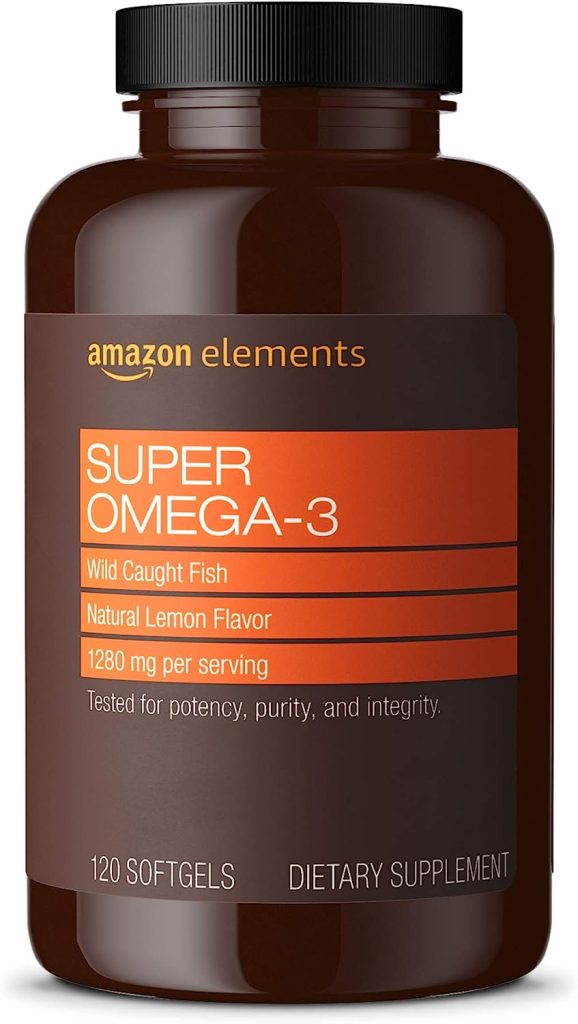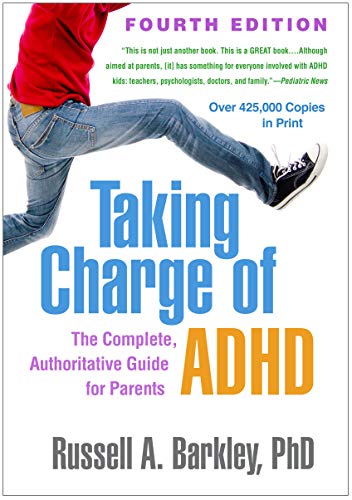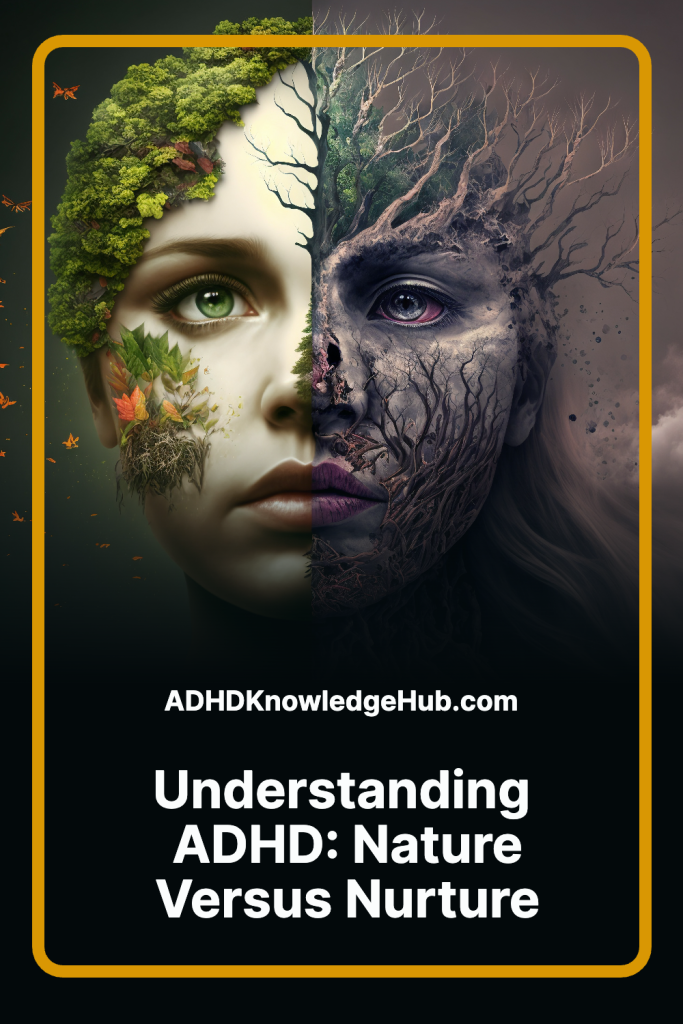Unlock the Secrets of ADHD: Nature Versus Nurture Unveiled!
Introduction – Nature Versus Nurture
Hello there! As an enthusiast and advisor with a deep fascination in ADHD, I’m frequently asked one intriguing question, “Is ADHD a consequence of nature or is it nurture?” This question forms the crux of a debate that has been in existence since time immemorial and is particularly pertinent when it comes to understanding ADHD. So, let’s delve into this fascinating topic and unravel the complex factors that contribute to ADHD.
When it comes to understanding ADHD, we need to consider the interplay between our genes (nature) and our environment (nurture). As they say, “Genetics loads the gun, environment pulls the trigger.” As we go on a journey to understand the various factors that contribute to ADHD, remember that this isn’t about attributing blame, but about understanding how we can help those suffering from ADHD lead healthier and more fulfilling lives. So, buckle up and let’s begin this journey of understanding and discovery!
Nature and ADHD
The Genetic Basis of ADHD
First and foremost, research over the past few decades has convincingly shown that genetics plays a substantial role in ADHD. Scientists have discovered several genes that are associated with the condition, many of which are linked with the brain’s dopamine pathways.
Studies involving families, twins, and adoptees provide substantial evidence supporting the genetic basis of ADHD. For instance, if a parent has ADHD, their child has a 50% chance of also having the condition. Twin studies have shown that identical twins (who share 100% of their genes) are more likely to both have ADHD than non-identical twins (who share 50% of their genes). But does this mean that ADHD is solely a product of your genetic code? Not quite. While genetics plays a significant role, it isn’t the whole story.
The Role of Neurobiology
When we talk about nature’s role in ADHD, we can’t ignore the role of neurobiology. People with ADHD often show differences in brain structure and activity. For instance, brain imaging studies have shown that the brains of individuals with ADHD are typically 5% smaller than those without the condition. Certain brain regions involved in attention and impulse control are also often smaller and less active in individuals with ADHD.
In addition to brain structure, the neurochemical environment of the brain also plays a role. People with ADHD have been found to have lower levels of dopamine, a neurotransmitter associated with pleasure, attention, and movement.
But remember, while these biological factors are important and influential, they are only a piece of a more complex puzzle. So, where does nurture fit into this puzzle?
Nurture and ADHD
Impact of the Environment
The environment we grow up and live in significantly shapes who we are, and this is no different for ADHD. For ADHD, several environmental factors have been implicated. Prenatal exposure to alcohol or nicotine, premature birth, and low birth weight are all associated with an increased risk of ADHD.
Toxic exposure can also play a role. For example, exposure to lead (often found in old paint or contaminated water) has been linked to a higher risk of ADHD.
One aspect that often gets overlooked is the impact of early childhood experiences. Early childhood trauma or neglect can significantly influence the development and expression of ADHD. Experiencing trauma or neglect can alter brain development and affect how the body responds to stress, leading to symptoms that overlap with ADHD.
The Role of Parenting
The role of parenting in ADHD is a sensitive and often misunderstood topic. Let’s be clear: parents do not cause ADHD. However, the parenting style and family environment can impact how the symptoms of ADHD manifest and are managed. More structured, nurturing environments can help children with ADHD manage their symptoms, develop coping strategies, and foster positive growth and development.
When we talk about parenting, we’re not just talking about the parent-child relationship. We’re talking about the entire home environment, the routines and structures in place, the interactions between family members, and the availability of support and resources.
There are specific parenting strategies that have been found to be effective in managing ADHD. These include providing clear and consistent rules, using rewards and consequences effectively, helping children with ADHD stay organized, providing plenty of opportunities for physical activity, ensuring a healthy diet, and ensuring adequate sleep.
Nature Versus Nurture: Striking a Balance
So, where does this leave us? Is ADHD a matter of nature or is it nurture? The answer, as we’ve seen, is that it’s both. ADHD isn’t a matter of nature versus nurture but nature and nurture. Our genetics and our environment interact and intertwine, each influencing the other, to shape who we are and how we behave. So, when it comes to managing ADHD, we need to take a holistic approach that takes into account both these aspects.
Treatment Options for ADHD
Natural Treatments
When it comes to natural treatments for ADHD, the first thing that comes to mind is medication. Medication is often a first-line treatment for ADHD and can be highly effective in managing symptoms.
When we talk about medication for ADHD, we usually refer to stimulant medications. Stimulants work by increasing the levels of certain chemicals in our brains that help with thinking and attention. Non-stimulant medications are also an option. They can be a good choice for those who can’t tolerate or don’t respond to stimulants.
That said, medication isn’t for everyone, and it’s important to consult with a healthcare professional before starting any new medication regimen. It’s also important to remember that while medication can help manage symptoms, it does not cure ADHD. The symptoms usually return once the medication is stopped.
Natural Treatments Beyond Medication
Beyond medication, there are other natural treatment options for ADHD that can complement medication or be used on their own. Dietary interventions, for example, can sometimes help manage ADHD symptoms.
Omega-3 fatty acid supplements ($15-$30 per bottle), which are essential for brain health, have been shown to reduce ADHD symptoms in some individuals. A healthy diet rich in protein, complex carbohydrates, and fiber can also help regulate blood sugar levels and improve focus and concentration.
Regular physical activity is another natural treatment that can be highly beneficial. Exercise increases dopamine levels in the brain, just like stimulant medications. It can help improve concentration, reduce impulsivity, and improve overall mood.
Nurture-based Treatments
Moving on to nurture-based treatments, these involve changes in the environment and behavior to help manage ADHD symptoms.
One effective nurture-based treatment is cognitive-behavioral therapy (CBT). This form of therapy, which costs about $100-$200 per session, helps individuals with ADHD develop strategies to manage their symptoms and cope with challenges. For example, they may learn skills to help with organization, time management, and dealing with distractions.

Another effective nurture-based treatment is behavioral parent training. This involves teaching parents strategies to help their child with ADHD succeed at home and in school. For example, they may learn how to use rewards and consequences effectively, create routines, and help their child with homework.
Schools can also provide specific support services for students with ADHD. These may include accommodations such as extra time on tests, breaks during class, or assistance with note-taking.
My Top Recommendations – Nature Versus Nurture
Now that we’ve covered the wide array of treatments available for ADHD, I want to share my top recommendations for those seeking solutions.
Products for Natural Treatment
For natural solutions, I highly recommend Omega-3 supplements. They can be a cost-effective way to complement other treatments and contribute to overall brain health. There are many brands available, but some of my favorites include Nordic Naturals and Nature’s Bounty, which offer high-quality products in the $15-$30 range.

Omega-3 Natural Softgels are dietary supplements that contain fish oil from wild-caught Alaska Pollock. They provide 1000 mg of omega-3 fatty acids per serving, which support heart, brain and eye health. The softgels are gluten-free, non-GMO and tested for purity and potency. They also have a natural lemon flavor to reduce fishy aftertaste. Amazon Elements Omega-3 Natural Softgels are made in the USA and come with a certificate of analysis that shows the origin and quality of the ingredients. The product has a 4.6 out of 5 stars rating from over 13,000 customer reviews on Amazon.com.
Products for Nurture-based Treatment
For the nurture aspect, there are many tools and resources that can help. For instance, the app ADHD Therapy ($10 per month) offers CBT-based techniques to manage symptoms. For parents, the book “Taking Charge of ADHD” by Russell Barkley provides invaluable advice and strategies.

Taking Charge of ADHD: The Complete, Authoritative Guide for Parents is a book by Dr. Russell A. Barkley, a leading expert on attention-deficit/hyperactivity disorder (ADHD). The book offers practical guidance and evidence-based strategies for parents to help their children manage the symptoms and challenges of ADHD. The book covers topics such as understanding ADHD, finding the right diagnosis and treatment, enhancing school success, improving behavior and self-esteem, and fostering family harmony. The book also includes worksheets, checklists, and forms that parents can use to plan and track their child’s progress. Taking Charge of ADHD: The Complete, Authoritative Guide for Parents has a 4.8 out of 5 stars rating from over 1,000 customer reviews on Amazon.com.
Conclusion – Nature Versus Nurture
In conclusion, ADHD is a complex condition shaped by both our genetic makeup and our experiences. As an enthusiast and advisor, I urge anyone affected by ADHD to consider both nature and nurture when seeking solutions. By recognizing the important role of both genetics and environment, we can move towards more effective, personalized strategies to manage ADHD.
FAQs – Nature Versus Nurture
- Is ADHD only genetic?
No, while genetics play a significant role, environmental factors also contribute to ADHD. - Can ADHD be cured?
While there is no cure for ADHD, there are many effective treatments that can manage symptoms effectively. - What natural treatments are there for ADHD?
Natural treatments can include medication, dietary changes, and supplements like Omega-3. - How does the environment affect ADHD?
Environmental factors such as prenatal exposures, early childhood trauma, and parenting style can all influence the development and expression of ADHD. - Is medication the only way to treat ADHD?
No, while medication can be effective, other treatments like cognitive-behavioral therapy, parent training, and school supports are also beneficial.
That’s the end of our exploration into the intriguing world of ADHD. Remember, everyone’s journey with ADHD is unique, and what works best will depend on the individual. Always consult with healthcare professionals and consider all options. And remember, while ADHD can present challenges, it can also come with unique strengths like creativity, energy, and the ability to think outside the box. Embrace the journey!

*We may earn a commission for purchases made using our links. Please see our disclosure to learn more.




